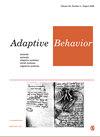超重男孩的运动姿势变异性和协调性
IF 1.3
4区 计算机科学
Q4 COMPUTER SCIENCE, ARTIFICIAL INTELLIGENCE
引用次数: 0
摘要
本研究的目的是检查正常体重儿童和超重儿童在跑步和跳跃中姿势适应的可变性和协调性。五十六名7至10岁的男孩 年被分为超重组(n = 33)或正常重量(n = 23)。他们在20米的直线距离上进行了两次跑步和跳跃的试验。躯干和头部安装了加速度计,用于收集15步不同方向的身体运动。分别通过多尺度熵和交叉近似熵计算跑步和跳跃试验的姿势变异性和协调性。研究结果表明,超重男孩在中侧方向上的躯干-头部协调性明显高于正常体重男孩(0.72对0.68)。跳跃运动模式的变异性最高(9.88对8.77),躯干-头部协同性最高(0.61对0.67)。过多的体重需要额外的姿势适应,以弥补超重男孩横向失去平衡的风险。本文章由计算机程序翻译,如有差异,请以英文原文为准。
Locomotion postural variability and coordination in boys with overweight
The purpose of this study was to examine the variability and coordination of postural adaptations in normal weight children and those with overweight in running and hopping. Fifty-six boys between 7 and 10 years were classified into groups as overweight (n = 33) or normal-weight (n = 23). They performed two trials of running and hopping over a 20-m straight line distance. Accelerometers were attached on the trunk and head for collecting body movements in different directions from 15 strides. Postural variability and coordination were calculated by multiscale entropy and cross approximate entropy for the running and hopping trials, separately. Findings highlight overweight boys had significantly higher trunk-head coordination in mediolateral direction than normal-weight boys (0.72 vs. 0.68). The hopping movement pattern had highest variability (9.88 vs. 8.77) and trunk–head coordination (0.61 vs. 0.67) than running. Excess body mass demands additional postural adaptations to compensate for reducing the risk of losing balance laterally in boys with overweight.
求助全文
通过发布文献求助,成功后即可免费获取论文全文。
去求助
来源期刊

Adaptive Behavior
工程技术-计算机:人工智能
CiteScore
4.30
自引率
18.80%
发文量
34
审稿时长
>12 weeks
期刊介绍:
_Adaptive Behavior_ publishes articles on adaptive behaviour in living organisms and autonomous artificial systems. The official journal of the _International Society of Adaptive Behavior_, _Adaptive Behavior_, addresses topics such as perception and motor control, embodied cognition, learning and evolution, neural mechanisms, artificial intelligence, behavioral sequences, motivation and emotion, characterization of environments, decision making, collective and social behavior, navigation, foraging, communication and signalling.
Print ISSN: 1059-7123
 求助内容:
求助内容: 应助结果提醒方式:
应助结果提醒方式:


